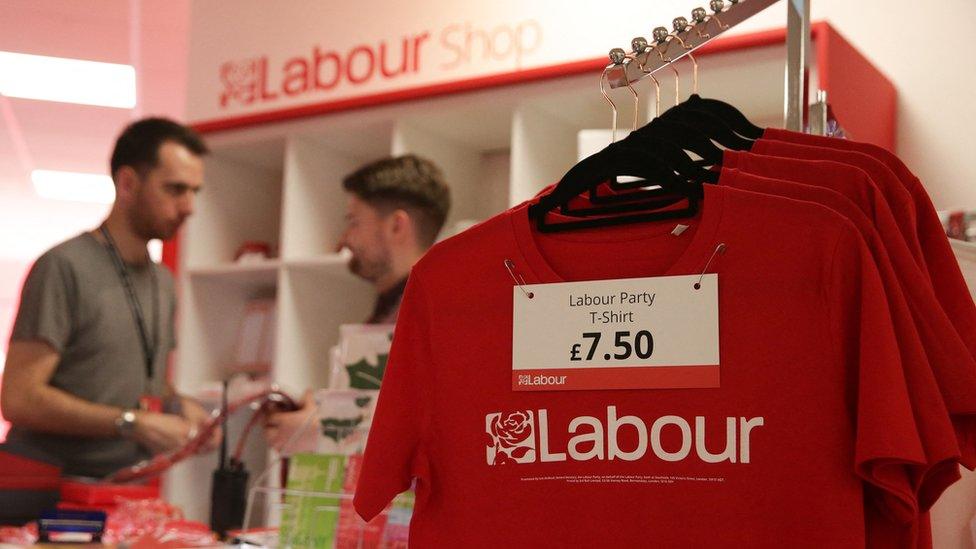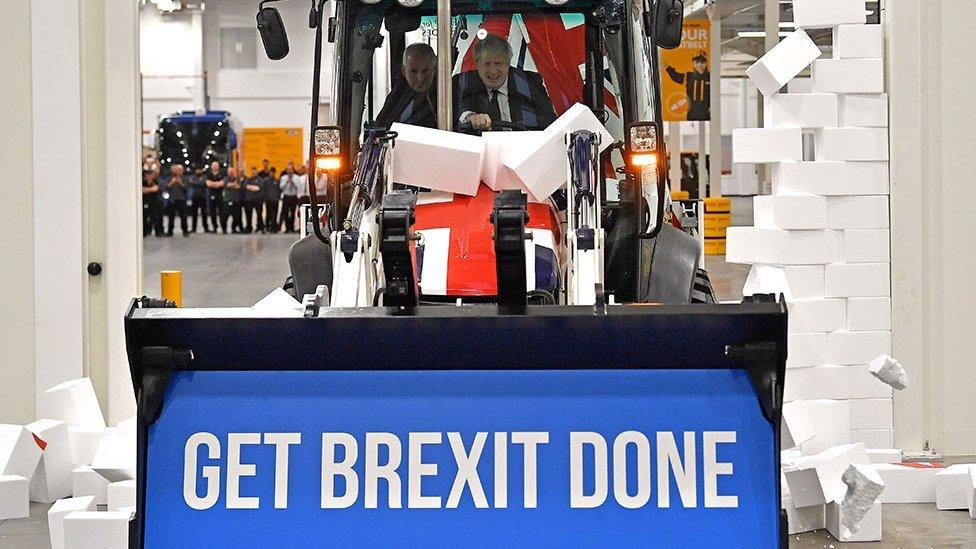Labour membership falls by 90,000, latest accounts show
- Published

The Labour Party lost about 91,000 members last year, according its accounts.
The party had 432,213 members at the end of 2021, down from 523,332 in 2020.
Leader Sir Keir Starmer said party membership always declines between elections - but left-wing critics said Jeremy Corbyn's departure had sparked an "exodus" of members.
Labour is still thought to have more than twice as many members as the Conservative Party.
The Conservatives do not publish membership figures, but the party recently indicated that it was more than 160,000.
Campaign group Momentum, which was set up to support Mr Corbyn's leadership, blamed Sir Keir's "factional" leadership of Labour for the membership decline, accusing him of "alienating" trade unions affiliated to the party.
But the Labour leader rejected this, telling the BBC that the fall reflected a "very familiar pattern".
He said the party's membership figure "goes up dramatically" ahead of elections or leadership contests, then "flattens back down again".
"I've looked at the patterns - they are exactly as we would have expected," he added.
The Liberal Democrats lost nearly 25,000 members last year. Their accounts show their numbers fell from 98,247 to 73,544.
The SNP won a fourth term in government in the Scottish Parliament election in 2021. Its membership fell only slightly - from 105,393 to 103,884.
Labour deficit grows
Accounts submitted to the Electoral Commission, external show Labour lost around £3m in membership fees, after they fell from £19.3m in 2020 to £16.2m.
The party said fee income overall was still comparable to 2017 and 2018, after a boom in membership under Mr Corbyn's leadership.
The party raised almost £10m in donations in 2021 from members, major donors and unions - an increase from £5.7m a year earlier.
Income overall stood last year stood at £46m, compared with the £32m for the Conservatives.
Labour's treasurers wrote that the "one-off cost" of voluntary redundancies had contributed to the deficit, with a bumper set of Covid-delayed elections in 2021 also adding to costs.
They said that party's finances "remain challenging" and the party was running a £5.2m deficit - up from £1m - meaning it spent more over the year than it earned.
The party was debt-free, however, they added.
Related topics
- Published2 October 2021

- Published4 October 2021
